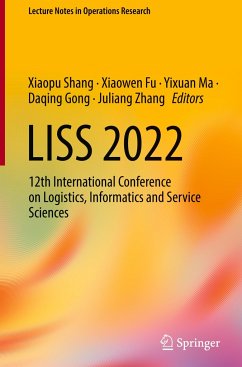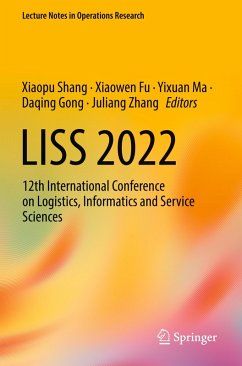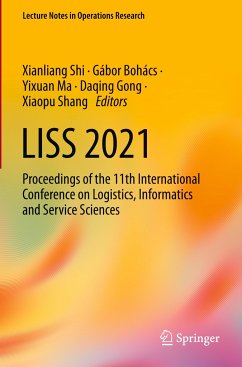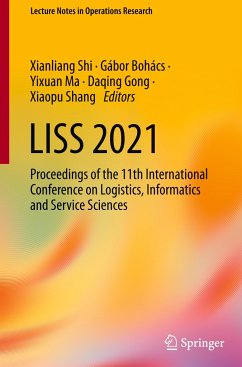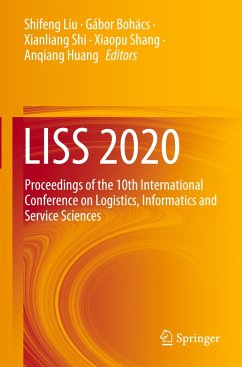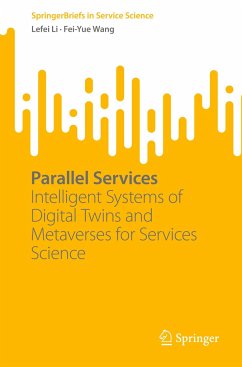
Social Decision Systems Science
Theory and Applications in Southeast Asia
Herausgegeben: Novani, Santi; Putro, Utomo Sarjono; Kijima, Kyoichi; Hermawan, Pri

PAYBACK Punkte
65 °P sammeln!
This book applies a decision systems science perspective to social systems, using the case of Southeast Asia to illustrate the concepts it sets forth. Southeast Asia is one of the most culturally diverse parts of the world, comprising 11 countries with a combined population of approximately 647 million people. The focus is on Indonesia, the largest and most populous country in the region.Indonesia is an archipelago that is highly heterogeneous. It is the world's fourth most populous country, with some 280 million people spread over 17,508 islands. Great diversity is seen in its culture; howeve...
This book applies a decision systems science perspective to social systems, using the case of Southeast Asia to illustrate the concepts it sets forth. Southeast Asia is one of the most culturally diverse parts of the world, comprising 11 countries with a combined population of approximately 647 million people. The focus is on Indonesia, the largest and most populous country in the region.
Indonesia is an archipelago that is highly heterogeneous. It is the world's fourth most populous country, with some 280 million people spread over 17,508 islands. Great diversity is seen in its culture; however, most of the people greatly value collectiveness or exhibit high sociability and solidarity, i.e., a communal culture. In the culture of business in Indonesia, relationships are absolutely essential as a basis of decision making, thus it is quite different than that found in the West. The ensuing daily complexities require intensive interaction, negotiation processes, and coordination. In this context, common theories and best practices that are generated on the basis of more simplified assumptions often fail. Systems science offers an approach that can take these issues into account and potentially overcome such complexities.
This book defines a social system as a complex interconnected set of entities that organize the life of human beings and that are implemented through a process of shared experience and creative tension such that they demonstrate emergent characteristics. To elucidate this definition, the discussion in the book aims to bridge and integrate basic research founded in systems concepts, logic, theories, and models of systems practices and methodologies into a process of social systems research. That process involves engaging various stakeholders in academia, business, and government so that in collaboration they can solve common problems based on multidisciplinary approaches-ones that encompass hard and soft and quantitative andqualitative systems as well as negotiations and simulations.
The book has three major parts, the first of which discusses the importance of decisions in social system science that can be applied in managing complexities. The second part describes the use of multidisciplinary approaches for social systems, and the third deals with efforts to apply previously accepted concepts to real cases in Indonesia.
Indonesia is an archipelago that is highly heterogeneous. It is the world's fourth most populous country, with some 280 million people spread over 17,508 islands. Great diversity is seen in its culture; however, most of the people greatly value collectiveness or exhibit high sociability and solidarity, i.e., a communal culture. In the culture of business in Indonesia, relationships are absolutely essential as a basis of decision making, thus it is quite different than that found in the West. The ensuing daily complexities require intensive interaction, negotiation processes, and coordination. In this context, common theories and best practices that are generated on the basis of more simplified assumptions often fail. Systems science offers an approach that can take these issues into account and potentially overcome such complexities.
This book defines a social system as a complex interconnected set of entities that organize the life of human beings and that are implemented through a process of shared experience and creative tension such that they demonstrate emergent characteristics. To elucidate this definition, the discussion in the book aims to bridge and integrate basic research founded in systems concepts, logic, theories, and models of systems practices and methodologies into a process of social systems research. That process involves engaging various stakeholders in academia, business, and government so that in collaboration they can solve common problems based on multidisciplinary approaches-ones that encompass hard and soft and quantitative andqualitative systems as well as negotiations and simulations.
The book has three major parts, the first of which discusses the importance of decisions in social system science that can be applied in managing complexities. The second part describes the use of multidisciplinary approaches for social systems, and the third deals with efforts to apply previously accepted concepts to real cases in Indonesia.






